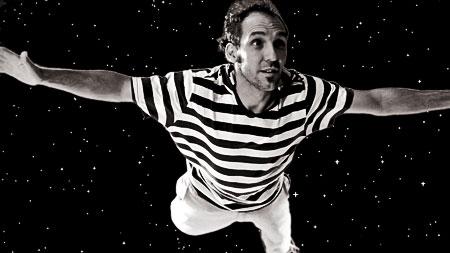Pairs of filmmakers who have never met before get a small lump of money and a year to make a film together. That's the basic concept of DOX:LAB, a talent development program created by the documentary film festival CPH:DOX matching young visual talents from Europe with young international filmmakers to co-direct documentaries outside of Europe.
"Since its first years, CPH:DOX has been strongly involved in inspiring continuing creative development of the documentary film genre," CPH:DOX festival director Tine Fischer says. "DOX:LAB is the next natural step in that vision. We want to create a space for artistic development, wild projects, unpredictability – without the accommodations that financing and distribution invariably entail.
"Bringing together two filmmakers from different cultural backgrounds within a lab-like framework that focuses on dialogue and process is a big help, I think, in unleashing cinematic development."
Aesthetic Courage
Since its launch in 2009, 40 filmmakers have been through DOX:LAB, which starts with a joint workshop and culminates in a film. The idea is to let European filmmakers and financing traditions get in touch with their non-European equivalents. Over the last few years, DOX:LAB has teamed up film-makers from Denmark, Sweden, Norway and Finland with fellow filmmakers from Uganda, Bhutan, Malaysia, China, Syria, Argentina, Thailand, the Philippines, Burma, Lebanon, Palestine, Paraguay and Rwanda.
"The idea emerged because we have travelled a lot for the festival over the last decade and seen a lot of films from every corner of the world. And trust me, films are being made, often under very difficult production circumstances that are cinematically innovative, aesthetically bold and far less homogeneous than a lot of the films that are produced in Denmark. It's a different world. When the financing landscape is weak or nonexistent, the courage to think wild thoughts is much more pervasive. Just as predictably, when you have a more stable financing system, you get a different kind of production culture with many stakeholders," Fischer says.
"DOX:LAB really is 'take the money and run'. Ten days of development, eight months of shooting and post-production – and 100,000 kroner (approx. 13,400 euros) to make it all happen. It's the craziest challenge. The speed of the process itself unleashes different kinds of energy. Plus, the collectivity that emerges within the group has a big effect on the creative process."
The Danish filmmaker Michael Noer agrees. DOX:LAB 2009 teamed him up with Khavn de la Cruz of the Philippines. Making "Son of God" together in Manila was a richly rewarding experience for the Danish talent.
"I have the greatest respect for Khavn de la Cruz. It was wild, being on the other side of the planet, in Manila, meeting a fellow digital warrior who was just as crazy as myself and jumping right into things without thinking about the bare-bones budget or my jetlag and delicate stomach. DOX:LAB was very valuable to my ongoing journey as a filmmaker," Noer says.
Award in Venice
"Son of God" got more attention than any other film from the first DOX:LAB. The second group that started out in 2010 has several promising partnerships, including the team-up of the Danish artist Jesper Just and the Thai documentary filmmaker Uruphong Raksasad. In September the Argentine-Swedish duo, Mauro Andrizzi and Marcus Lindeen, took their film, "Accidentes Gloriosos", to the Venice Film Festival and won the Orrizonti prize as part of the overall DOX:LAB concept.
Since DOX:LAB focuses on creative innovation through new encounters, it is pure gravy when the films turn out well.
"These are aesthetic experiments focusing on the process, but it would be a lie if I told you we aren't very interested in getting some finished films that can go to major festivals and be seen, create attention and foster discussion," Fischer says.
The 2010 group has done just that. In November 2011, a new group of DOX:LAB talents are in position in the lab to follow up on that success.
For further information on DOX:LAB, see www.cphdox.dk
